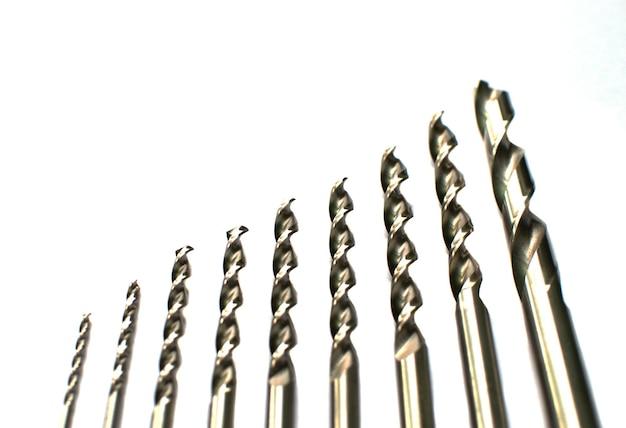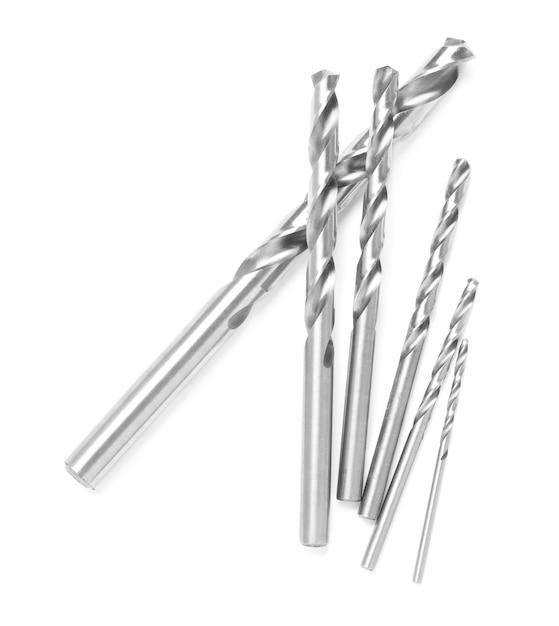Drill bits are essential tools for any DIY enthusiast or professional handyman. Whether you’re working on a home improvement project or tackling a construction job, having a reliable drill bit is crucial. But have you ever wondered how long drill bits last? Can you sharpen them to extend their lifespan? And when is it time to replace them?
In this blog post, we’ll answer these questions and more as we delve into the world of drill bits. We’ll explore the factors that affect their longevity, discuss techniques to maintain and sharpen them, and provide insights into when it’s time to bid farewell to a worn-out drill bit. So if you’re curious about the lifespan of drill bits and want to make the most of your drilling endeavors, keep reading!
How Long Do Drill Bits Last
When it comes to drill bits, it’s essential to know how long they last. After all, you don’t want to be left high and dry in the middle of a project with a worn-out bit. So, let’s dive into the world of drill bits and find out just how long they can last!
The Lifespan of a Drill Bit
Drill bits, like any other tool, have a finite lifespan. However, how long they last depends on a variety of factors, including the material of the bit, the type of tasks it’s used for, and how well it’s taken care of. On average, a high-quality drill bit can last anywhere from 200 to 400 holes before it starts to wear down.
Material Matters
The material of the drill bit plays a significant role in its longevity. Different materials are better suited for specific tasks, and some are more durable than others. For example, titanium-coated drill bits are known for their durability and can last longer than regular high-speed steel bits. So, if you’re planning on tackling a tough drilling job, investing in a drill bit made of a durable material can save you time and money in the long run.
Type of Tasks
The type of tasks you use your drill bit for can also impact its lifespan. If you mainly use your drill for light-duty tasks like drilling into wood or plastic, your bit is likely to last longer compared to using it for heavy-duty tasks like drilling into concrete or metal. The harder the material you’re drilling into, the more strain it puts on the bit, leading to faster wear and tear.
Taking Care of Your Bits
Proper maintenance can significantly extend the lifespan of your drill bits. Regular cleaning and lubrication can prevent debris from accumulating and reduce friction, which in turn minimizes wear. Additionally, using the correct drilling speed and applying the right amount of pressure can prevent unnecessary strain on the bit and help it last longer. Remember, a happy bit is a long-lasting bit!
Signs of Wear
Knowing when your drill bit is reaching the end of its life is crucial to avoid any mishaps or accidents. Signs of wear include a dull tip, overheating, reduced drilling speed, or difficulty in penetrating materials. If you notice any of these signs, it’s time to retire your old bit and invest in a new one.
In conclusion, the lifespan of a drill bit depends on various factors such as material, tasks performed, and maintenance. While drill bits can last anywhere from 200 to 400 holes on average, it’s important to be attentive to signs of wear and invest in high-quality bits for tough drilling jobs. With proper care and periodic replacement, your drill bits can serve you well for a long time. So, go ahead and tackle that next DIY project with confidence, knowing that you have a reliable and long-lasting drill bit by your side!
FAQ: How Long Do Drill Bits Last
Welcome to our comprehensive FAQ guide on drill bits! Whether you’re a seasoned DIY enthusiast or a professional tradesperson, understanding the lifespan and maintenance of drill bits is essential. In this FAQ-style section, we’ll address your burning questions about drill bits and provide you with expert answers. So, let’s dive right in!
Is it worth sharpening drill bits
Absolutely! Sharpening your drill bits can help extend their lifespan and improve their performance. Dull drill bits can cause frustration and inefficiency, as they tend to wander and create larger holes than intended. So, grab your trusty drill bit sharpener and give those bits a new lease on life!
How do you maintain a drill bit
Proper maintenance is key to maximize the lifespan of your drill bits. Here are a few tips:
-
Clean after every use: Remove any debris or residue that may have accumulated during drilling. A quick wipe-down will do the trick.
-
Use cutting lubricant: When drilling through tough materials, applying a suitable cutting lubricant can reduce friction and heat, prolonging the life of your drill bit.
-
Store them properly: Keep your drill bits in a dry place, preferably in a case or container designed for storage. This prevents rust and damage from occurring.
Can you sharpen masonry drill bits
Yes, you can sharpen masonry drill bits, but it requires some extra care. Due to their toughness, masonry bits can be challenging to sharpen accurately. Consider using a specialized masonry drill bit sharpener or seek professional sharpening services to maintain the integrity of these bits.
When should you replace a drill
If your drill is showing signs of decreased power, struggles to hold a charge, or has excessive wear and tear, it may be time to invest in a new one. Obsolete technology or safety concerns are also valid reasons to replace your drill. So, bid farewell to the old and welcome the shiny new drill into your toolbox!
Do drill bits wear out
Yes, drill bits do wear out over time. Factors like drilling frequency, the materials you drill into, and the quality of the bits can all affect their longevity. Keep an eye out for dullness, reduced performance, or excessive heat during drilling, as these are signs that your drill bits may need replacing.
How many times can you use a diamond drill bit
Ah, the sparkling diamonds! Diamond drill bits are renowned for their durability. On average, you can use a diamond drill bit between 30 to 50 times before its diamond coating wears down. Keep drilling like a pro until your diamond bit loses its shine!
How long does a masonry bit last
Masonry bits, made to conquer concrete and other tough materials, are robust companions for your drilling endeavors. On average, a well-maintained masonry bit can last around 200 to 300 holes. However, this can vary depending on factors like the quality of the bit and the hardness of the material being drilled.
Do diamond drill bits wear out
While diamonds are forever, diamond drill bits eventually succumb to wear and tear. Over time, the diamond particles on the bit’s surface become dull and less effective. So, when your diamond drill bit starts to lose its cutting edge, it’s time to retire it from your drilling squad.
Why do my drill bits keep breaking
Ah, the frustration of broken drill bits! Several factors can contribute to this predicament. Here are a few possible culprits:
-
Excessive pressure: Applying too much pressure while drilling can cause your drill bits to break. Remember, let the bit do the work!
-
Using the wrong type of bit: Different materials require different types of drill bits. Using the wrong bit for a particular job can lead to breakage.
-
Low-quality bits: Investing in high-quality drill bits reduces the chances of them breaking prematurely. Cheap bits may save you a few bucks upfront, but they’ll cost you in the long run.
When should I replace my drill
Knowing when to bid adieu to your trusty drill is crucial for your safety and productivity. Here are a few signs it’s time for a replacement:
-
Lackluster performance: If your drill struggles to deliver the power it once had, even with a fully charged battery or direct power source, it’s time to upgrade.
-
Frequent breakdowns: If breakdowns and malfunctions become a regular occurrence, it’s more cost-effective to invest in a new drill rather than constant repairs.
-
Outdated technology: With advancing technology, newer drills often boast improved features, such as better battery life and enhanced ergonomics. Treat yourself to the latest innovation!
Why are diamonds used to make drill bits
Well, who doesn’t love a bit of sparkle? Diamonds are renowned for their exceptional hardness and durability, making them ideal for cutting through tough materials like glass, ceramics, and concrete. So, the next time you admire your diamond drill bit, remember that diamonds truly are a drill’s best friend!
What is the hardest drill bit
Drilling through hard materials requires some serious firepower. Tungsten carbide drill bits, with their remarkable hardness and resistance to wear, stand tall as the hardest drill bits available. These mighty bits conquer the toughest drilling challenges with ease.
How often do you need to replace drill bits
The frequency of drill bit replacement depends on various factors, such as the materials being drilled, the quality of the bits used, and the intensity of the drilling. As a general rule of thumb, it’s wise to inspect your drill bits regularly and replace them when they show signs of wear or fail to perform up to your expectations.
Why can’t I drill through concrete
Concrete may seem impenetrable, but fear not, aspiring DIYers! Drilling through concrete requires the right tools and techniques. If you’re struggling to get through, ensure you’re using a masonry drill bit suitable for concrete, applying sufficient pressure, and using a low speed to prevent overheating. With a bit of patience and perseverance, you’ll conquer that concrete obstacle!
How long should a concrete drill bit last
Concrete drill bits endure punishing drilling conditions, but they’re up to the challenge! On average, a high-quality concrete drill bit can last around 40 to 50 holes in solid concrete. Remember, proper maintenance and technique can further enhance their lifespan, making the drilling experience smoother and more enjoyable.
What speed should you drill concrete
Ah, the sweet spot for drilling into concrete! When using a drill to penetrate concrete, opt for slower drilling speeds to reduce heat and prevent your drill bit from overheating. Set your drill to a lower RPM range and let it eat through the concrete at a steady pace. Remember, patience is key!
Where is drill doctor made
Drill Doctor, the renowned drill bit sharpening machine, is proudly made right here in the good ol’ USA! So, when you invest in a Drill Doctor, you’re not just sharpening your bits efficiently, you’re also supporting American craftsmanship.
We hope this FAQ-style guide has answered your burning questions about the lifespan and maintenance of drill bits. Remember to keep your bits sharp, maintain them properly, and replace them when necessary. With these tips in your toolbox, you’ll be drilling with confidence and efficiency. Happy drilling, and may your bits last long and prosper!

